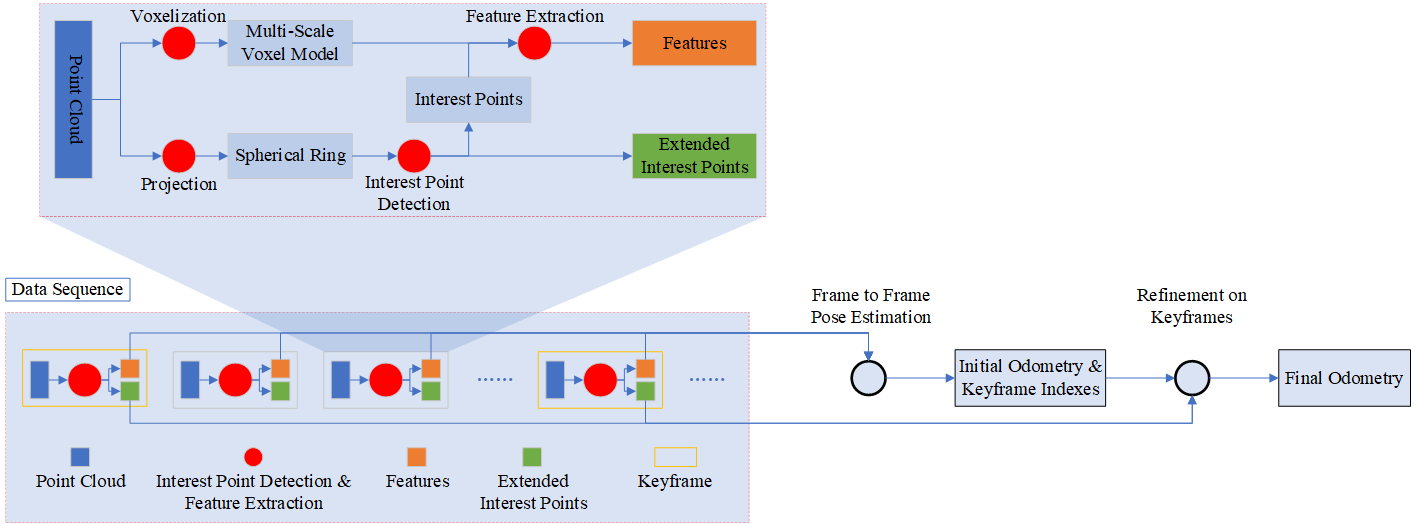CAE-LO: LiDAR Odometry Leveraging Fully Unsupervised Convolutional Auto-Encoder for Interest Point Detection and Feature Description
As an important technology in 3D mapping, autonomous driving, and robot navigation, LiDAR odometry is still a challenging task. Appropriate data structure and unsupervised deep learning are the keys to achieve an easy adjusted LiDAR odometry solution with high performance. Utilizing compact 2D structured spherical ring projection model and voxel model which preserves the original shape of input data, we propose a fully unsupervised Convolutional Auto-Encoder based LiDAR Odometry (CAE-LO) that detects interest points from spherical ring data using 2D CAE and extracts features from multi-resolution voxel model using 3D CAE. We make several key contributions: 1) experiments based on KITTI dataset show that our interest points can capture more local details to improve the matching success rate on unstructured scenarios and our features outperform state-of-the-art by more than 50% in matching inlier ratio; 2) besides, we also propose a keyframe selection method based on matching pairs transferring, an odometry refinement method for keyframes based on extended interest points from spherical rings, and a backward pose update method. The odometry refinement experiments verify the proposed ideas' feasibility and effectiveness.
PDF Abstract


 KITTI
KITTI